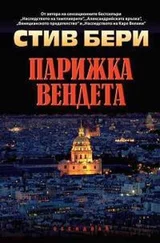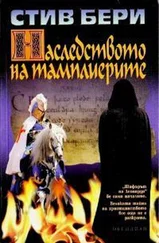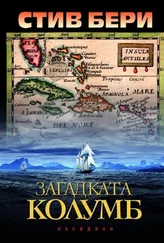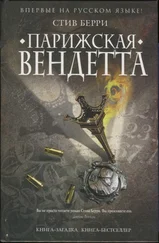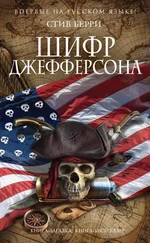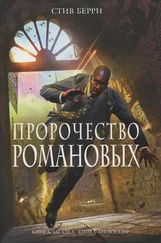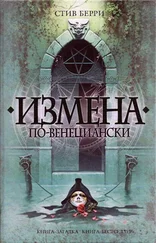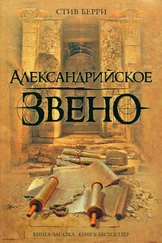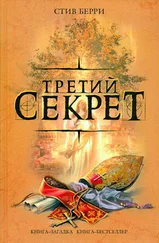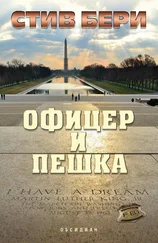Not an answer. “I’ll ask again. Who is Gerhard Schüb?”
“A man who knows great deal.” She motioned to the envelope. “And he is sharing some of what he knows.”
“Why doesn’t he come forward himself?”
“He does not want to be found. Not even for Oma. ” She paused. “Or ex-presidents. He send me.” She stared at him hard. “You don’t understand any of this, do you?”
Through the insult he caught the unspoken message.
There is more here than you know.
“There are people and things, from past, that still have meaning today,” she said. “Great meaning, in fact. As German chancellor will find out—if she pursues this matter. Tell Oma to be diligent.”
“Toward what?”
“Victory.”
An odd answer, but he let it pass. He lifted the envelope. “Inside here is a sheet with numbers on it. They look like GPS coordinates. Are they?”
She nodded. “It is a place, I am told, you need to visit.”
“Why?”
She shrugged. “How would I know? I just messenger.”
“You didn’t bother to mention any of this yesterday.”
“Never got chance. Before arrested and hit in face.”
Which explained the bruise.
“I read the other papers in the envelope,” he said. “They talk of things that have been over for a long time. World War Two. Hitler. Nazis.”
She laughed, short and shallow. “Amazing how history can have meaning. Pay attention, Ex-President, you might learn things.”
He could see she was going to be difficult.
But he specialized in difficult. “Is Gerhard Schüb my instructor?”
“Herr Schüb is only trying to help.”
“To what end?”
She smiled. “To find truth. What else?”
She reached for the pack of cigarettes. He decided another smoke might loosen her tongue so he allowed her the privilege. She quickly lit up, and two deep drags seemed to relax her.
He needed to know more.
Especially about the origins of the documents in the envelope.
Her eyes changed first. A forlorn, pensive gaze replaced by sudden fear, then pain, then desperation. The muscles in her face tightened and contorted in a look that signaled agony. Her fingers released their grip on the cigarette. Hands reached for her throat. Her tongue sprang from her mouth and she gagged, trying to suck air. Spittle foamed, then seeped from her lips.
He came to his feet and tried to help. She grabbed his jacket with both hands, her eyes wide with terror.
“Kai … ser.”
She strangled one last breath, then her head fell to one side as the muscles in her neck surrendered. Her grip relaxed and she slumped over in the chair. On the waft of her last exhale came a tinge of bitter almond.
A smell he recognized.
Cyanide.
He stared at the pack of cigarettes on the table, the butt still burning on the floor.
What the hell?
And what did she mean by—
Kaiser.
THREE DAYS LATER
CHAPTER ONE
REPUBLIC OF BELARUS
TUESDAY, JUNE 11
8:50 A.M.
Cotton Malone knew the signs of trouble. He should, since he lived in that perilous state more often than not. Take today. It started off innocent enough with breakfast at the superb Beijing Hotel. A touch of the Orient in a former Soviet bloc nation. First class all the way, as it should be, since he had company on this journey.
“I hate planes,” Cassiopeia Vitt said.
He smiled. “Tell me something I don’t know.”
They were five thousand feet in the air, headed southwest toward Poland. Below stretched miles of unpopulated forest, the towns few and far between. They’d come east as a favor to former president Danny Daniels, who’d appeared in Copenhagen two days ago with a problem. The chancellor of Germany was looking for someone named Gerhard Schüb. A Belarusian woman named Hanna Cress had appeared in Bavaria with some incredible information, then had been murdered, but not before uttering one word.
Kaiser.
“Do you think the two of you could take a quick trip to Minsk and see if you can learn more about her and/or Gerhard Schüb?” Daniels had asked.
So they’d chartered a plane and flown from Denmark yesterday morning, making inquiries all day.
Which had attracted attention.
“Do you think we can get out of this country in one piece?” she asked.
“I’d say it’s about fifty–fifty.”
“I don’t like those odds.”
He grinned. “We’ve made it this far.”
They’d barely escaped the hotel after the militsiya arrived in search of them. Then they’d made it to the airport just ahead of their pursuers only to find that the plane they’d arrived in yesterday had been confiscated. So he did what any enterprising bookseller who’d once served as an intelligence officer for the United States Justice Department would do, and stole another.
“I really hate planes,” she said again. “Especially ones I can barely move around in.”
Their choice of rides had been limited, and he’d settled for a GA8 Airvan. Australian made. Single engine, strut-based wing, all metal, with an odd, asymmetrical shape. A bit squared-off and boxy would be a more accurate description. Designed for rough airstrips and bush landings. He’d flown one a few years ago and liked it. On this model the eight rear seats were gone, making for a somewhat roomy cabin behind them. Advertisements painted to the fuselage confirmed that this was a skydiving plane, and it had been easy to hot-wire the engine to life.
He watched as she studied the ground out the windows.
“It’s not that bad,” he said.
“That’s all relative.”
She was gorgeous. The Latin–Arab gene mix definitely produced some exceptionally attractive women. Add in being smart and savvy with the courage of a lioness, and what was not to love. Little rattled her save for she loathed the cold, and where he hated enclosed spaces she detested heights. Unfortunately, neither of them seemed to be able to avoid either.
“Do you know where we are?” she asked.
“I’d say north of Brest, which sits right on the Polish border. I was hoping to catch a glimpse of the town, off to the south.”
He’d dead reckoned their course, keeping the morning sun behind them and following the dash compass on a southwest heading. Too far north and they’d end up in Lithuania, which could continue their troubles. Poland was where they wanted to be, safe back in the EU. The Belarus State Security Committee remained the closest thing to the old Soviet KGB that still existed. It had even kept the same shorthand name, along with the rep as a major human rights violator. Torture, executions, beatings, you name it, those guys were guilty. So he preferred not to experience any of their methods firsthand.
He kept a light grip on the yoke, which sprang up from the floor rather than sticking out of the control panel. He had excellent visibility through the forward and side windows. The sky ahead loomed clear, the ground below a sea of dense trees. A road ran in a dark, winding path among them with an occasional farmhouse here and there.
He loved flying.
A plane was, to him, like a being unto itself. Flying was once supposed to have been his career. But things changed. Which, considering his life, seemed like an understatement.
He made a quick scan of the controls. Airspeed, eighty knots. Fuel, forty-five gallons. Electrical, all good. Controls, responsive.
Below, to the south, he caught sight of Brest in the distance.
Perfect.
“There’s our marker,” he said. “The border’s not far.”
They’d made good time on the 120 miles from Minsk. Once inside Poland he’d find a commercial airport to land where they could make their way out of the country on the first available flight. Far too risky to keep using this stolen ride.
Читать дальше

